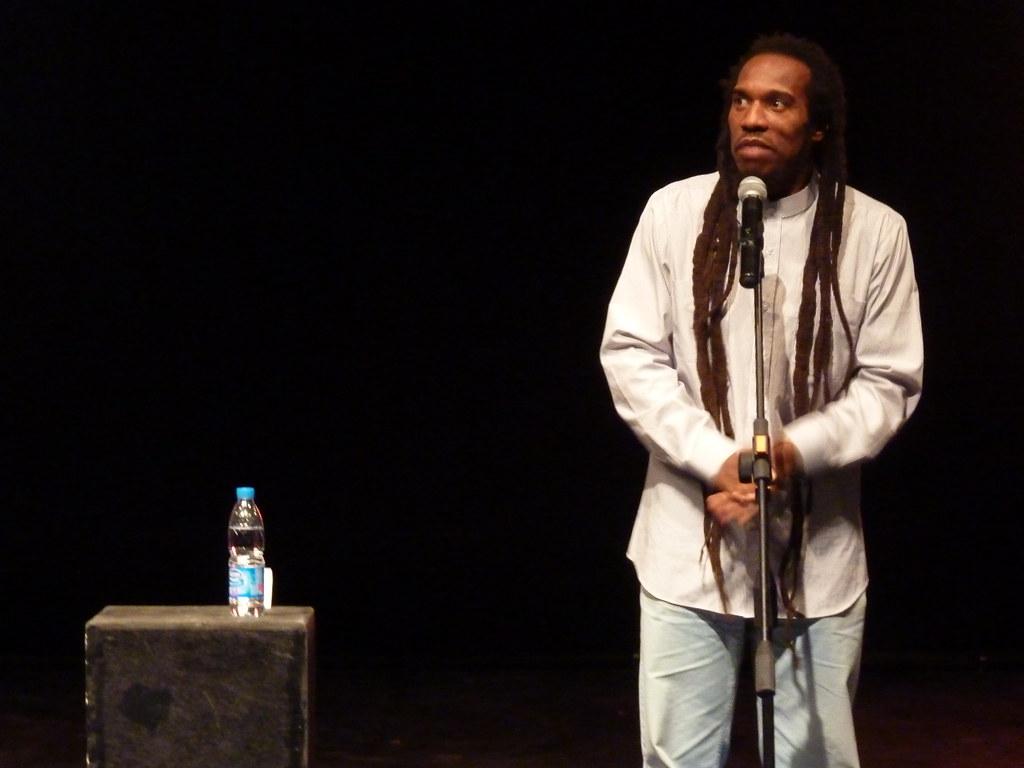Benjamin Zephaniah
Benjamin Zephaniah was born and raised outside Brimingham, in a district called Handsworth, a place with a large Caribbean community. With a father from Barbados and a mother from Jamaica, he became an integral part of this community, which later served as a source of inspiration for his music and poetry.

His background seems unlikely for a poet: he was dyslexic and dropped out of school at the age of 13, unable to read and write properly. After he left school he sought refuge in gangs, where he also got involved in petty crime. At the same time, this young boy, who was tough on the outside, revealed that he had deeper thoughts that he eventually formed into poetry. Already at the age of 15, Zephaniah had gained a reputation as a young poet with a clear voice and a unique style.
At 22, he published his first collection of poetry. Later, he published 13 poetry collections, in addition to numerous novels, children’s books, and plays. He became a professor of literature at Brunel University in London in 2011. Over the years, he found his place in British poetry tradition, and in 2008, he was included in The Times' list of Britain’s 50 greatest post-war writers. He was a frequent debater on social and political issues and he actively used the platform he had gained through his fame to campaign for social justice.
Zephaniah’s work is defined as dub poetry. This is a form of oral performance poetry, often staged to music, and it is strongly influenced by the music and poetry of Jamaica. Zephaniah often found inspiration for his poetry in political issues, and he drew heavily on his own experiences of multiculturalism, racism and prejudice. Even when they convey a serious message, many of his poems are tempered by hope, humor, and laughter.
Related content
A poem about the death of Joy Gardner, an immigrant from Jamaica.
A poem by Benjamin Zephaniah which in a humours way points out the race connotations that we often have in our language.